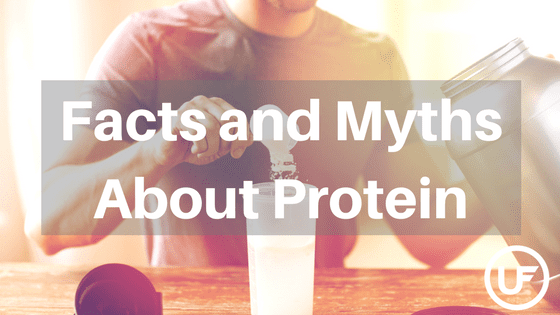Protein intake is a hot topic in the health and fitness world, and along with it come several myths and misconceptions. Here are some common myths about protein intake:
Fact & Myth 1: More Protein Equals More Muscle: While protein is essential for muscle repair and growth, consuming excessive amounts won’t automatically result in bigger muscles. The body has a limit to how much protein it can effectively utilize for muscle synthesis. Consuming protein beyond this threshold won’t provide additional benefits and may even be stored as fat, yes “FAT” !!!
Fact & Myth 2: You Need Massive Amounts of Protein: The recommended dietary allowance (RDA) for protein is about 0.8 grams per kilogram of body weight for sedentary adults. Athletes and individuals engaged in intense physical activity may require slightly higher amounts upto 1.2 – 2.0 per kilogram of bodyweight, but the idea that you need massive quantities of protein, especially from supplements, is often exaggerated. Most people can meet their protein needs through a balanced diet that includes sources like lean meats, fish, eggs, dairy, legumes, and nuts.
Fact & Myth 3: All Protein Sources Are Equal: Not all protein sources are created equal in terms of their nutritional value and amino acid profile. Animal sources such as meat, fish, poultry, eggs, and dairy are considered complete proteins because they contain all essential amino acids in adequate amounts. Plant-based sources like beans, lentils, tofu, and quinoa are often incomplete proteins but can be combined to form complete proteins. It’s essential to vary protein sources to ensure you’re getting a wide range of nutrients.
Fact & Myth 4: Protein Powders Are Necessary for Muscle Gain: While protein powders can be a convenient way to increase protein intake, especially for athletes or those with specific dietary needs, they are not essential for muscle gain. Whole food sources of protein are often more nutrient-dense and provide additional vitamins, minerals, and fibre. Protein supplements should complement a balanced diet rather than replace whole foods.
Fact & Myth 5: Protein Causes Kidney Damage: There’s a common belief that high protein intake can harm the kidneys, particularly among individuals with pre-existing kidney conditions. However, research suggests that in healthy individuals, moderate to high protein diets do not pose a risk to kidney function. People with kidney disease or other renal issues may need to monitor their protein intake, but for the general population, protein consumption within recommended levels is unlikely to cause harm. For sure, if the protein supplements are taken in high doses and increase or surpass the recommended levels, kidney damage is possible due to increased Uric acid.
Fact & Myth 6: Protein Timing Is Crucial: While timing protein intake around workouts may have some benefits in terms of muscle protein synthesis, the overall distribution of protein throughout the day is more important than specific timing. Aim to spread protein intake evenly across meals and snacks to support muscle repair and maintenance throughout the day.
It’s essential to base dietary choices on scientific evidence and individual needs rather than falling for common myths and misconceptions surrounding protein intake. Consulting with a registered dietitian or nutritionist can provide personalized guidance on protein consumption and overall dietary patterns.


